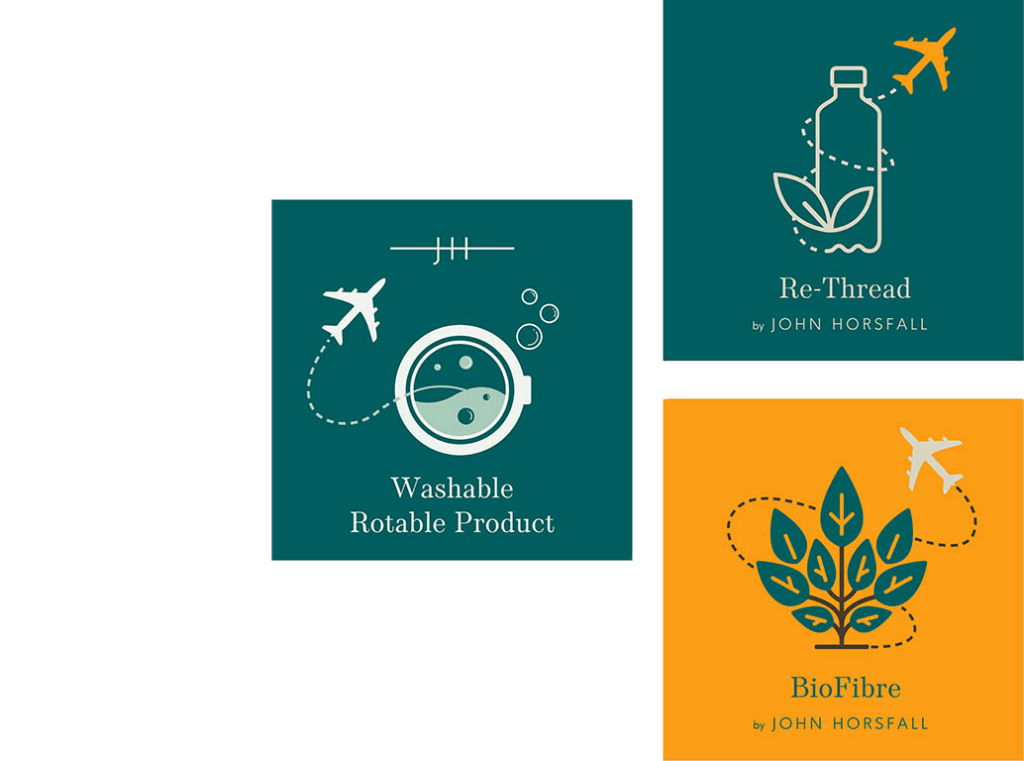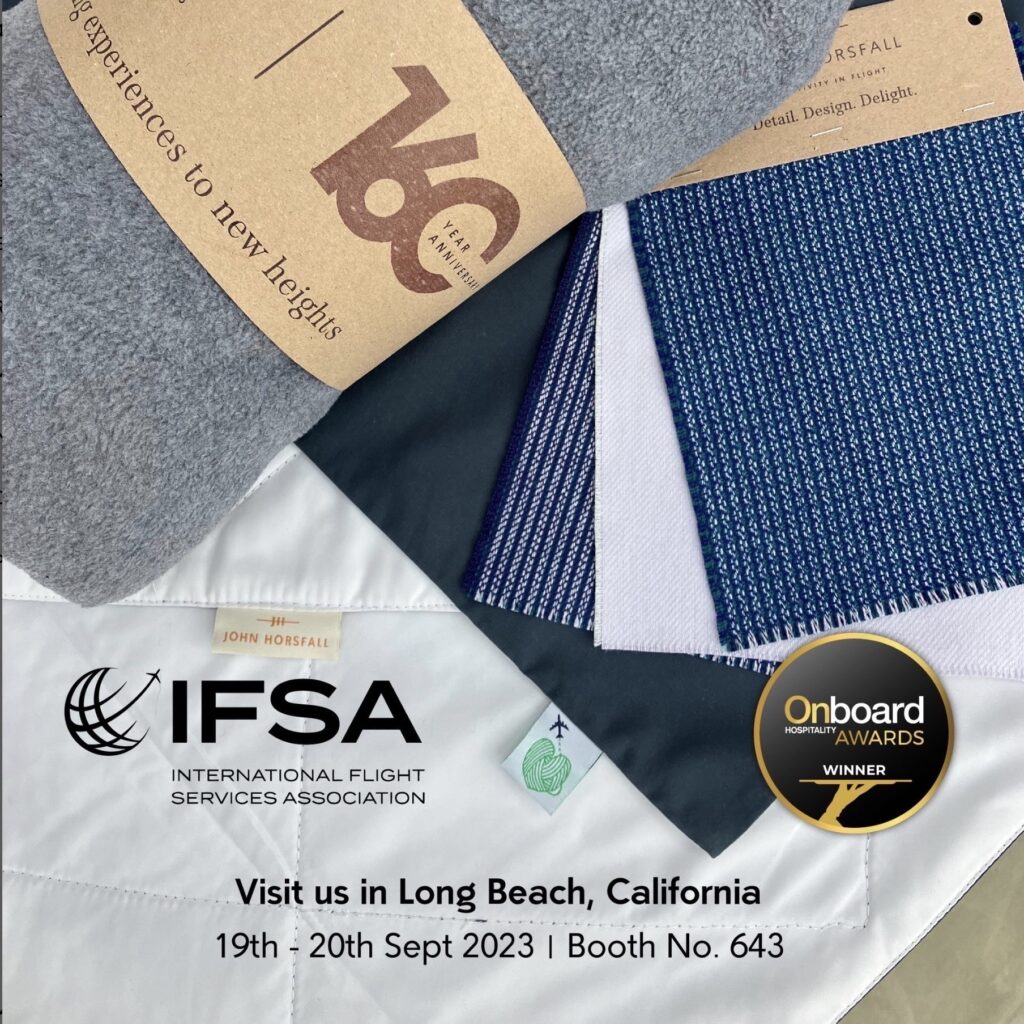Exploring the future of aviation textiles with John Horsfall
Share
With a history dating back to 1863, John Horsfall has transformed itself into a leading name in aviation textiles. In an interview at the IFSA/APEX EXPO, we delved into the company’s journey and vision for the future.
From Woollen Blankets to Aviation Textile Specialists
Founded in 1863 in West Yorkshire, UK, John Horsfall originally specialised in producing woollen blankets. However today the company is focused purely on the aviation industry.

The company’s transition began in the 1970s when they found an unexpected opportunity in supplying blankets to British Airways. Ellie Parkes, the Global Business Development Manager, recalls that “some clever salesperson sold a few blankets to British Airways. That really changed the whole focus of our business.” John Horsfall has now been supplying in-cabin textile items to British Airways for 45 years.
According to Parkes, the company today has a “global reach in terms of manufacturing and customers.” At the same time, the company stays close to its origins by continuing to focus only on textiles. “We haven’t diversified into crockery, cutlery, headsets, that sort of thing”, says Parkes. “We keep textiles as our focus, and our team are predominantly textile or design graduates.”
The challenge of durability and longevity
One of the foremost challenges in producing textiles for airlines is ensuring they withstand the rigours of being washed over and over. As a result, design manager Alexandra Allen, says that the company tests its products to ensure beauty and durability. “When we’re designing all of our products, we utilise all of our knowledge on aviation laundries, which differ all across the world.”
This is important, as Allen says that airlines use “very robust laundries”, where the “product is getting washed again after every flight. So we want to make sure that our products are beautiful when they start, and that they stay beautiful throughout.”
Sustainability under the ReThread brand

With in-cabin sustainability becoming increasingly important, John Horsfall has introduced its ‘ReThread’ brand, featuring products made from recycled materials such as GRS certified polyester and reclaimed cotton.
The new branding serves two purposes. Parkes says that it’s “important to put these things in place for ethical reasons.” However, the branding is also there to inform and educate the customer. “As a passenger you want to feel good about your airline experience”, says Parkes. “You can say, you’ve flown with a blanket made of recycled polyester, and it makes you feel better.”
However, the company also encourages airlines to consider sustainability from a holistic perspective.
While plastics-based polyester is often seen as less sustainable, it offers advantages in terms of energy-efficient laundering and reduced transportation emissions when compared to traditional cotton.
In contrast, Allen says that while cotton is perceived to be more sustainable the reality is that, “you have a lot of water usage in the manufacturing, there are problems with deforestation”, because of land use to grow cotton.
According to Allen, “there are so many aspects to think of in the whole world of sustainable textiles. But that knowledge can help us just create better products where everything we know, all the information we have, can just keep helping us improve.”
However, Parkes and Allen did say that the cost of polyester made from recycled plastics is slowly dropping down to be more competitive compared to regular polyester, which opens up scope for more airlines to use these materials in future.
Parkes also says that the company now “proposes a recycled or at least an option that has 50% recycled fibre in it” to customers. In addition, with “all of our filled products, we now offer recycled filling as standard.”
Using different materials to customise the passenger experience

At the IFSA / APEX Global EXPO, John Horsfall has showcased a number of new concepts, including a cooling pillow designed to dissipate heat naturally through specialised yarn. This technology is being explored for use in duvets, offering passengers a personalised climate-controlled experience.
Another innovative product is a dual-sided pillow, featuring memory foam on one side for optimal support and fiberfill on the other.
“One side is a memory foam side that’s really supportive, you can kind of have lumbar support”, says Allen. “But the other side is just fiberfill. That’s something that’s a cosier sleep pillow.. And much softer. So the customer can choose exactly which side they want, depending on what they’re doing in the journey, whether they decide to sleep or sit.”
As a result, the company is increasingly looking at how to use smart fabrics to customise a passenger’s experience, in a natural way without recourse to chemical treatments.
To find out more about John Horsfall, visit their website, or come to stand 643 at IFSA/APEX EXPO.


